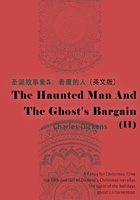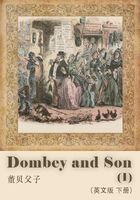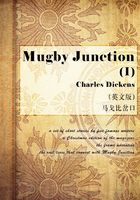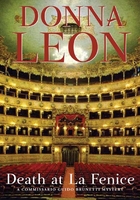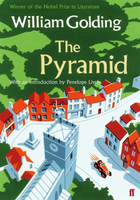Where unspecified, translations from French to English or vice versa are by Beckett.
1906
13 April Samuel Beckett [Samuel Barclay Beckett] born in 'Cooldrinagh', a house in Foxrock, a village south of Dublin, on Good Friday, the second child of William Beckett and May Beckett, née Roe; he is preceded by a brother, Frank Edward, born 26 July 1902.
1911
Enters kindergarten at Ida and Pauline Elsner's private academy in Leopardstown.
1915
Attends larger Earlsfort House School in Dublin.
1920
Follows Frank to Portora Royal, a distinguished Protestant boarding school in Enniskillen, County Fermanagh (soon to become part of Northern Ireland).
1923
October Enrols at Trinity College Dublin (TCD) to study for an Arts degree.
1926
August First visit to France, a month-long cycling tour of the Loire Valley.
1927
April–August Travels through Florence and Venice, visiting museums, galleries, and churches.
December Receives B.A. in Modern Languages (French and Italian) and graduates first in the First Class.
1928
Jan.–June Teaches French and English at Campbell College, Belfast.
September First trip to Germany to visit seventeen-year-old Peggy Sinclair, a cousin on his father's side, and her family in Kassel.
1 November Arrives in Paris as an exchange lecteur at the école Normale Supérieure. Quickly becomes friends with his predecessor, Thomas McGreevy [after 1943, MacGreevy], who introduces Beckett to James Joyce and other influential anglophone writers and publishers.
December Spends Christmas in Kassel (as also in 1929, 1930 and 1931).
1929
June Publishes first critical essay ('Dante … Bruno . Vico . . Joyce') and first story ('Assumption') in transition magazine.
1930
July Whoroscope (Paris: Hours Press).
October Returns to TCD to begin a two-year appointment as lecturer in French.
November Introduced by MacGreevy to the painter and writer Jack B.Yeats in Dublin.
1931
March Proust (London: Chatto and Windus).
September First Irish publication, the poem 'Alba' in Dublin Magazine.
1932
January Resigns his lectureship via telegram from Kassel and moves to Paris.
Feb.–June First serious attempt at a novel, the posthumously published Dream of Fair to Middling Women.
December Story 'Dante and the Lobster' appears in This Quarter (Paris).
1933
3 May Death of Peggy Sinclair from tuberculosis.
26 June Death of William Beckett from a heart attack.
1934
January Moves to London and begins psychoanalysis with Wilfred Bion at the Tavistock Clinic.
February Negro Anthology, edited by Nancy Cunard and with numerous translations by Beckett from the French (London: Wishart and Company).
May More Pricks Than Kicks (London: Chatto and Windus).
Aug.–Sept. Contributes several stories and reviews to literary magazines in London and Dublin.
1935
November Echo's Bones and Other Precipitates, a cycle of thirteen poems (Paris: Europa Press).
1936
Returns to Dublin.
29 September Leaves Ireland for a seven-month stay in Germany.
1937
Apr.–Aug. First serious attempt at a play, Human Wishes, about Samuel Johnson and his household.
October Settles in Paris.
1938
6/7 January Stabbed by a street pimp in Montparnasse. Among his visitors at H?pital Broussais is Suzanne Deschevaux-Dumesnil, an acquaintance who is to become Beckett's companion for life.
March Murphy (London: Routledge).
April Begins writing poetry directly in French.
1939
3 September Great Britain and France declare war on Germany. Beckett abruptly ends a visit to Ireland and returns to Paris the next day.
1940
June Travels south with Suzanne following the Fall of France, as part of the exodus from the capital.
September Returns to Paris.
1941
13 January Death of James Joyce in Zurich.
1 September Joins the Resistance cell Gloria SMH.
1942
16 August Goes into hiding with Suzanne after the arrest of close friend Alfred Péron.
6 October Arrival at Roussillon, a small village in unoccupied southern France.
1944
24 August Liberation of Paris.
1945
30 March Awarded the Croix de Guerre.
Aug.–Dec. Volunteers as a storekeeper and interpreter with the Irish Red Cross in Saint-L?, Normandy.
1946
July Publishes first fiction in French – a truncated version of the short story 'Suite' (later to become 'La Fin') in Les Temps modernes, owing to a misunderstanding by editors – as well as a critical essay on Dutch painters Geer and Bram van Velde in Cahiers d'art.
1947
Jan.–Feb. Writes first play, in French, Eleutheria (published posthumously).
April Murphy, French translation (Paris: Bordas).
1948
Undertakes a number of translations commissioned by UNESCO and by Georges Duthuit.
1950
25 August Death of May Beckett.
1951
March Molloy, in French (Paris: Les éditions de Minuit).
November Malone meurt (Paris: Minuit).
1952
Purchases land at Ussy-sur-Marne, subsequently Beckett's preferred location for writing.
September En attendant Godot (Paris: Minuit).
1953
5 January Premiere of Godot at the Théatre de Babylone in Montparnasse, directed by Roger Blin.
May L'Innommable (Paris: Minuit).
August Watt, in English (Paris: Olympia Press).
1954
8 September Waiting for Godot (New York: Grove Press).
13 September Death of Frank Beckett from lung cancer.
1955
March Molloy, translated into English with Patrick Bowles (New York: Grove; Paris: Olympia).
3 August First English production of Godot opens in London at the Arts Theatre.
November Nouvelles et Textes pour rien (Paris: Minuit).
1956
3 January American Godot premiere in Miami.
February First British publication of Waiting for Godot (London: Faber).
October Malone Dies (New York: Grove).
1957
January First radio broadcast, All That Fall on the BBC Third Programme.
Fin de partie, suivi de Acte sans paroles (Paris: Minuit).
28 March Death of Jack B.Yeats.
August All That Fall (London: Faber).
October Tous ceux qui tombent, translation of All That Fall with Robert Pinget (Paris: Minuit).
1958
April Endgame, translation of Fin de partie (London: Faber).
From an Abandoned Work (London: Faber).
July Krapp's Last Tape in Grove Press's literary magazine, Evergreen Review.
September The Unnamable (New York: Grove).
December Anthology of Mexican Poetry, translated by Beckett (Bloomington: Indiana University Press; later reprinted in London by Thames and Hudson).
1959
March La Dernière bande, translation of Krapp's Last Tape with Pierre Leyris, in the Parisian literary magazine Les Lettres nouvelles.
2 July Receives honorary D.Litt. degree from Trinity College Dublin.
November Embers in Evergreen Review.
December Cendres, translation of Embers with Pinget, in Les Lettres nouvelles.
Three Novels: Molloy, Malone Dies, The Unnamable (New York: Grove; Paris: Olympia Press).
1961
January Comment c'est (Paris: Minuit).
24 March Marries Suzanne at Folkestone, Kent.
May Shares Prix International des Editeurs with Jorge Luis Borges.
August Poems in English (London: Calder).
September Happy Days (New York: Grove).
1963
February Oh les beaux jours, translation of Happy Days (Paris: Minuit).
May Assists with the German production of Play (Spiel, translated by Elmar and Erika Tophoven) in Ulm.
22 May Outline of Film sent to Grove Press. Film would be produced in 1964, starring Buster Keaton, and released at the Venice Film Festival the following year.
1964
March Play and Two Short Pieces for Radio (London: Faber).
April How It Is, translation of Comment c'est (London: Calder; New York: Grove).
June Comédie, translation of Play, in Les Lettres nouvelles.
July–Aug. First and only trip to the United States, to assist with the production of Film in New York.
1965
October Imagination morte imaginez (Paris: Minuit).
November Imagination Dead Imagine (London: The Sunday Times; Calder).
1966
January Comédie et Actes divers, including Dis Joe and Va et vient (Paris: Minuit).
February Assez (Paris: Minuit).
October Bing (Paris: Minuit).
1967
February D'un ouvrage abandonné (Paris: Minuit).
Têtes-mortes (Paris: Minuit).
16 March Death of Thomas MacGreevy.
June Eh Joe and Other Writings, including Act Without Words II and Film (London: Faber).
July Come and Go, English translation of Va et vient (London: Calder).
26 September Directs first solo production, Endspiel (translation of Endgame by Elmar Tophoven) in Berlin.
November No's Knife: Collected Shorter Prose 1945–1966 (London: Calder).
December Stories and Texts for Nothing, illustrated with six ink line drawings by Avigdor Arikha (New York: Grove).
1968
March Poèmes (Paris: Minuit).
December Watt, translated into French with Ludovic and Agnès Janvier (Paris: Minuit).
1969
23 October Awarded the Nobel Prize for Literature. Sans (Paris: Minuit).
1970
April Mercier et Camier (Paris: Minuit).
Premier amour (Paris: Minuit).
July Lessness, translation of Sans (London: Calder).
September Le Dépeupleur (Paris: Minuit).
1972
January The Lost Ones, translation of Le Dépeupleur (London: Calder; New York: Grove). The North, part of The Lost Ones, illustrated with etchings by Arikha (London: Enitharmon Press).
1973
January Not I (London: Faber).
July First Love (London: Calder).
1974
Mercier and Camier (London: Calder).
1975
Spring Directs Godot in Berlin and Pas moi (translation of Not I) in Paris.
1976
February Pour finir encore et autres foirades (Paris: Minuit).
20 May Directs Billie Whitelaw in Footfalls, which is performed with That Time at London's Royal Court Theatre in honour of Beckett's seventieth birthday.
Autumn All Strange Away, illustrated with etchings by Edward Gorey (New York: Gotham Book Mart).
Foirades/Fizzles, in French and English, illustrated with etchings by Jasper Johns (New York: Petersburg Press).
December Footfalls (London: Faber).
1977
March Collected Poems in English and French (London: Calder; New York: Grove).
1978
May Pas, translation of Footfalls (Paris: Minuit).
August Poèmes, suivi de mirlitonnades (Paris: Minuit).
1980
January Compagnie (Paris: Minuit).
Company (London: Calder).
May Directs Endgame in London with Rick Cluchey and the San Quentin Drama Workshop.
1981
March Mal vu mal dit (Paris: Minuit).
April Rockaby and Other Short Pieces (New York: Grove).
October Ill Seen Ill Said, translation of Mal vu mal dit (New York: New Yorker; Grove).
1983
April Worstward Ho (London: Calder).
September Disjecta: Miscellaneous Writings and a Dramatic Fragment, containing critical essays on art and literature as well as the unfinished play Human Wishes (London: Calder).
1984
February Oversees San Quentin Drama Workshop production of Godot, directed by Walter Asmus, in London.
Collected Shorter Plays (London: Faber; New York: Grove).
May Collected Poems 1930–1978 (London: Calder).
July Collected Shorter Prose 1945–1980 (London: Calder).
1989
April Stirrings Still, with illustrations by Louis le Brocquy (New York: Blue Moon Books).
June Nohow On: Company, Ill Seen Ill Said, Worstward Ho, illustrated with etchings by Robert Ryman (New York: Limited Editions Club).
17 July Death of Suzanne Beckett.
22 December Death of Samuel Beckett. Burial in Cimetière de Montparnasse.
*
1990
As the Story Was Told: Uncollected and Late Prose (London: Calder; New York: Riverrun Press).
1992
Dream of Fair to Middling Women (Dublin: Black Cat Press).
1995
Eleutheria (Paris: Minuit).
1996
Eleutheria, translated into English by Barbara Wright (London: Faber).
1998
No Author Better Served:The Correspondence of Samuel Beckett and Alan Schneider, edited by Maurice Harmon (Cambridge MA: Harvard University Press).
2000
Beckett on Film: nineteen films, by different directors, of Beckett's works for the stage (RTé, Channel 4, and Irish Film Board; DVD, London: Clarence Pictures).
2006
Samuel Beckett:Works for Radio:The Original Broadcasts: five works spanning the period 1957–1976 (CD, London: British Library Board).
2009
The Letters of Samuel Beckett 1929?1940, edited by Martha Dow Fehsenfeld and Lois More Overbeck (Cambridge: Cambridge University Press).
Compiled by Cassandra Nelson
Selected Poems 1930–1989
Whoroscope
What's that?
An egg?
By the brothers Boot it stinks fresh.
Give it to Gillot.
Galileo how are you
and his consecutive thirds!
The vile old Copernican lead-swinging son of a sutler!
We're moving he said we're off – Porca Madonna!
the way a boatswain would be, or a sack-of-potatoey charging Pretender.
10
That's not moving, that's moving.
What's that?
A little green fry or a mushroomy one?
Two lashed ovaries with prostisciutto?
How long did she womb it, the feathery one?
Three days and four nights?
Give it to Gillot.
Faulhaber, Beeckman and Peter the Red,
come now in the cloudy avalanche or Gassendi's sun-red crystally cloud
and I'll pebble you all your hen-and-a-half ones
20
or I'll pebble a lens under the quilt in the midst of day.
To think he was my own brother, Peter the Bruiser,
and not a syllogism out of him
no more than if Pa were still in it.
Hey! pass over those coppers,
sweet millèd sweat of my burning liver!
Them were the days I sat in the hot-cupboard throwing Jesuits out of the skylight.
Who's that? Hals?
Let him wait.
My squinty doaty!
30
I hid and you sook.
And Francine my precious fruit of a house-and-parlour foetus!
What an exfoliation!
Her little grey flayed epidermis and scarlet tonsils!
My one child
scourged by a fever to stagnant murky blood –
blood!
Oh Harvey belovèd
how shall the red and white, the many in the few,
(dear bloodswirling Harvey)
40
eddy through that cracked beater?
And the fourth Henry came to the crypt of the arrow.
What's that?
How long?
Sit on it.
A wind of evil flung my despair of ease
against the sharp spires of the one
lady:
not once or twice but….
(Kip of Christ hatch it!)
50
in one sun's drowning
(Jesuitasters please copy).
So on with the silk hose over the knitted, and the morbid leather –
what am I saying! the gentle canvas –
and away to Ancona on the bright Adriatic,
and farewell for a space to the yellow key of the Rosicrucians.
They don't know what the master of them that do did,
that the nose is touched by the kiss of all foul and sweet air,
and the drums, and the throne of the faecal inlet,
and the eyes by its zig-zags.
60
So we drink Him and eat Him
and the watery Beaune and the stale cubes of Hovis
because He can jig
as near or as far from His Jigging Self
and as sad or lively as the chalice or the tray asks.
How's that, Antonio?
In the name of Bacon will you chicken me up that egg.
Shall I swallow cave-phantoms?
Anna Maria!
She reads Moses and says her love is crucified.
70
Leider! Leider! she bloomed and withered,
a pale abusive parakeet in a mainstreet window.
No I believe every word of it I assure you.
Fallor, ergo sum!
The coy old fr?leur!
He tolle'd and legge'd
and he buttoned on his redemptorist waistcoat.
No matter, let it pass.
I'm a bold boy I know
so I'm not my son
80
(even if I were a concierge)
nor Joachim my father's
but the chip of a perfect block that's neither old nor new,
the lonely petal of a great high bright rose.
Are you ripe at last,
my slim pale double-breasted turd?
How rich she smells,
this abortion of a fledgling!
I will eat it with a fish fork.
White and yolk and feathers.
Then I will rise and move moving 90
toward Rahab of the snows,
the murdering matinal pope-confessed amazon,
Christina the ripper.
Oh Weulles spare the blood of a Frank
who has climbed the bitter steps,
(René du Perron …!)
and grant me my second
starless inscrutable hour.
Notes
René Descartes, Seigneur du Perron, liked his omelette made of eggs hatched from eight to ten days; shorter or longer under the hen and the result, he says, is disgusting.
He kept his own birthday to himself so that no astrologer could cast his nativity.
The shuttle of a ripening egg combs the warp of his days.
3 In 1640 the brothers Boot refuted Aristotle in Dublin.
4 Descartes passed on the easier problems in analytical geometry to his valet Gillot.
5–10 Refer to his contempt for Galileo Jr., (whom he confused with the more musical Galileo Sr.), and to his expedient sophistry concerning the movement of the earth.
17 He solved problems submitted by these mathematicians.
21–26 The attempt at swindling on the part of his elder brother Pierre de la Bretaillière – The money he received as a soldier.
27 Franz Hals.
29–30 As a child he played with a little cross-eyed girl.
31–35 His daughter died of scarlet fever at the age of six.
37–40 Honoured Harvey for his discovery of the circulation of the blood, but would not admit that he had explained the motion of the heart.
41 The heart of Henri IV was received at the Jesuit college of La Flèche while Descartes was still a student there.
45–53 His visions and pilgrimage to Loretto.
56–65 His Eucharistic sophistry, in reply to the Jansenist Antoine Arnauld, who challenged him to reconcile his doctrine of matter with the doctrine of transubstantiation.
68 Schurmann, the Dutch blue-stocking, a pious pupil of Vo?t, the adversary of Descartes.
73–76 Saint Augustine has a revelation in the shrubbery and reads Saint Paul.
77–83 He proves God by exhaustion.
91–93 Christina, Queen of Sweden. At Stockholm, in November, she required Descartes, who had remained in bed till midday all his life, to be with her at five o'clock in the morning.
94 Weulles, a Peripatetic Dutch physician at the Swedish court, and an enemy of Descartes.
Gnome
Spend the years of learning squandering
Courage for the years of wandering
Through a world politely turning
From the loutishness of learning.

